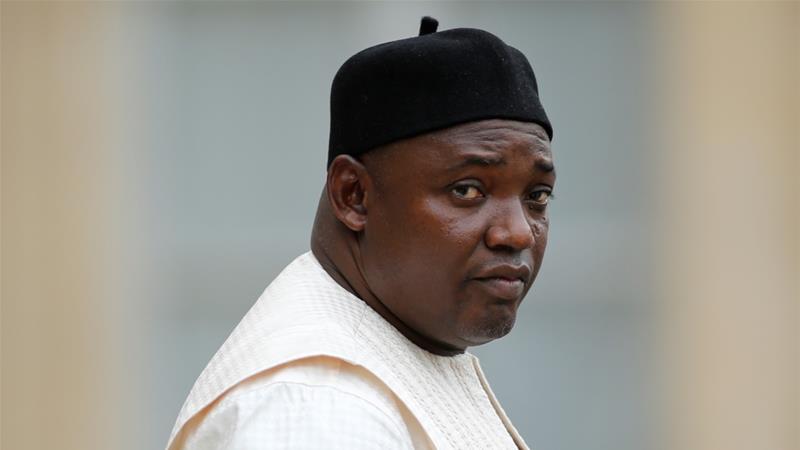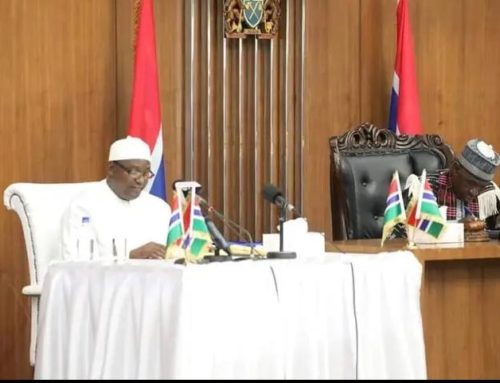When Adama Barrow assumed The Gambia‘s presidency in early 2017, many in the country viewed him as a possible saviour – someone who would be able to revive a nation reeling from Yahya Jammeh’s brutal 22-year rule.
Barrow promised to raise living standards, bring about democratic reform and set up a truth and reconciliation commission to heal a divided nation.
The demonstrators – part of the Three Years Jotna (Three years is enough) movement – are calling for Barrow to keep to his word and resign next month. The winner of December 2016’s election, Barrow first took the oath of office in neighbouring Senegal in January 2017, as Jammeh refused to cede power, before being sworn in on the Gambian soil the following month.
‘Missed opportunity’
Analysts say Monday’s protests also reflect dissatisfaction with a presidency that has failed to meet expectations.
“In my view, his time has been a missed opportunity,” said Madi Jobarteh, a prominent Gambian human rights activist.
Barrow came to power as the head of an alliance of opposition parties formed to contest the 2016 election, which ended with Jammeh losing and eventually fleeing abroad. A political novice, Barrow had previously worked as a security guard in a department store in London while studying, before becoming a property tycoon on his return to The Gambia.
The alliance had agreed that if Barrow were to win, he would serve as a transitional president for three years before organising elections in which he would not stand.
However, the agreement was not legally binding, and instead of preparing to step down, Barrow has already begun to prepare for the 2021 election on the basis that The Gambia’s constitution allows for five-year presidential terms.
“Legal analysts are pointing to the constitution to argue that he can stay for five years,” said Abdoulaye Saine, a professor of political science at the United States-based Miami University.
“But there is also a moral argument which is centred on the fact that this agreement was signed by party leaders and is morally binding,” Saine, an expert on The Gambia, added.
“If he reneges on that promise why should anyone take him seriously in 2021?”




Leave A Comment